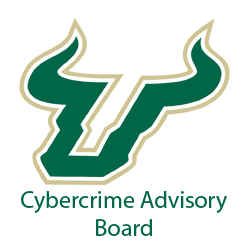
Top Five Reasons Not to use Free Wi-Fi
There’s an old adage that’s become a bit obscure lately: There’s no such thing as a free lunch. This is especially true with free technology. We’re sure your business has its secure networks set up, but employees might not always use them. So while some of the best things in life are free, free Wi-Fi is one thing you should avoid, especially on the job. This article will cover why employees might use free Wi-Fi and why this is dangerous.
We’ll also provide some tips if you can’t avoid using unsecured Wi-Fi so you can stay more secure.
Why Do Employees Use Free Wi-Fi?
Convenience is one of the biggest reasons employees use free Wi-Fi from local sources. Many businesses use productivity software and other measures to prevent unauthorized browsing on company networks. In these cases, it’s common for employees to use a neighbor’s Wi-Fi or set up their own hotspot through a mobile device. Whether you’re aware or not, joining a free Wi-Fi connection can expose you to criminals.
What Can Attackers See on Free Wi-Fi?
One of the biggest dangers is that most free Wi-Fi services are not secure. This includes Wi-Fi with a password. Attackers can see passwords, login credentials, financial information… Anything you do could be visible to an attacker on the same network. Since you probably don’t control the free Wi-Fi around you, you don’t know who has access to it.
The Five Biggest Dangers of Free Wi-Fi Networks
In addition to seeing your information, attackers on open Wi-Fi can do all this and more:
1) Attackers can steal your login details. This includes usernames and passwords, and even security question answers. This can give attackers easy access to your company’s computers.
2) Third parties can access your computer through exploits on free Wi-Fi. They can use malicious software to enter your system, steal data, or make modifications.
3) Attackers can see what websites your employees use. This can help them tailor phishing attacks to target your employees directly. For example, if you use a certain time-keeping service, an attacker could create a forged duplicate of the site to steal information.
4) Your account could be stolen with stolen login keys and credentials. While you’re logged into the account, they could gain access to it and change the details, including removing recovery information.
5) Attackers can install malware and spyware on your device by sending it through the network. If you’re connected to an infected device, you could become infected without knowing it.
How to Stay Safe
Train your employees to be aware of these risks. Please encourage them to avoid logging in or logging in on an unsecured network. If you do have to log in, ensure they use a website with an HTTPS:// URL. Be sure they have different, secure passwords across every account. Also, you should avoid having file sharing turned on when using public Wi-Fi. These connections should also only be used for specific things and then closed.
Educating your employees has to be the biggest thing you do. Visit our website to learn more about the importance of employee training. If you’re not convinced, consider this:
You are more likely to be hacked on a public Wi-Fi network than you are to suffer a break-in. Protect yourself and contact Arruda Group today.




